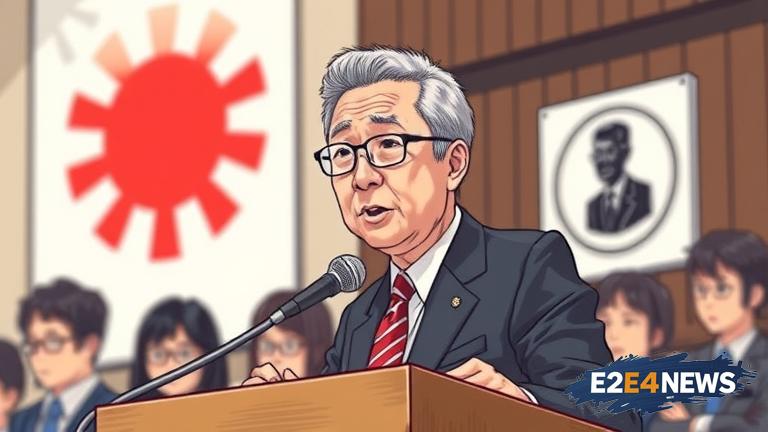The mayor of Mihama, a town in Fukui Prefecture, Japan, has recently sparked a heated debate over the potential restart of a nuclear reactor in the area. The reactor, which has been idle since 2011, is one of several in the region that have been shut down due to safety concerns and public opposition. However, the mayor argues that restarting the reactor is necessary to boost the local economy and provide a stable source of energy. The move has been met with resistance from local residents and anti-nuclear activists, who cite concerns over safety and the potential risks associated with nuclear power. Despite these concerns, the mayor remains committed to the restart, citing the economic benefits it would bring to the region. The decision has also been backed by the Japanese government, which has been pushing to restart idle reactors in an effort to reduce the country’s reliance on fossil fuels. However, the move has been met with criticism from opposition parties and environmental groups, who argue that the government is prioritizing economic interests over public safety. The debate highlights the ongoing struggle between economic and environmental concerns in Japan, where the nuclear industry has been a major contributor to the economy but has also been plagued by safety concerns and public opposition. The Mihama reactor is one of several in the region that have been shut down since the Fukushima Daiichi nuclear disaster in 2011, which highlighted the risks associated with nuclear power and led to a major shift in public opinion. Since then, the Japanese government has implemented new safety regulations and guidelines for the nuclear industry, but many critics argue that these measures do not go far enough to address the risks associated with nuclear power. The restart of the Mihama reactor would be a major test of these new regulations and would likely be closely watched by regulators and the public. The decision to restart the reactor would also have significant implications for the local community, which has been divided over the issue. While some residents support the restart, citing the economic benefits it would bring, others are strongly opposed, citing concerns over safety and the potential risks associated with nuclear power. The debate highlights the complex and often conflicting interests at play in the nuclear industry, where economic, environmental, and public safety concerns must be carefully balanced. As the debate continues, it remains to be seen whether the Mihama reactor will be restarted, and what the implications will be for the local community and the wider nuclear industry. The Japanese government has stated that it will prioritize public safety and ensure that any restart is carried out in accordance with strict safety guidelines. However, critics argue that the government’s commitment to public safety is not sufficient, and that more needs to be done to address the risks associated with nuclear power. The Mihama reactor is just one of several nuclear reactors in Japan that have been shut down since the Fukushima disaster, and the debate over its restart is part of a wider conversation about the future of nuclear power in the country. As Japan continues to grapple with the challenges of energy production and public safety, the fate of the Mihama reactor will be closely watched by regulators, the public, and the nuclear industry. The decision to restart the reactor would have significant implications for the local economy and community, and would likely be a major test of the Japanese government’s commitment to public safety. The debate highlights the need for careful consideration and balancing of competing interests in the nuclear industry, where economic, environmental, and public safety concerns must be carefully weighed. The Mihama reactor is a significant example of the challenges and complexities of the nuclear industry, and the debate over its restart will likely have far-reaching implications for the future of nuclear power in Japan.





